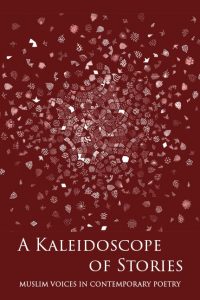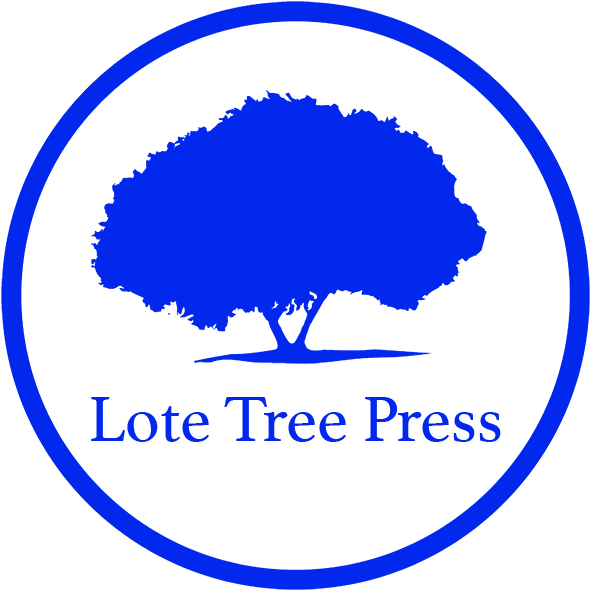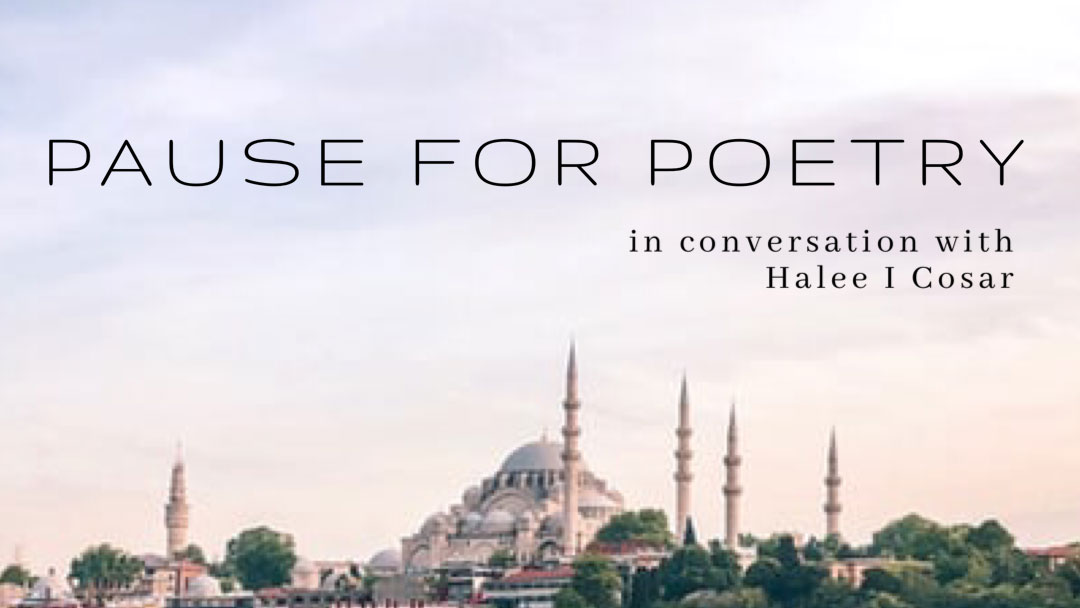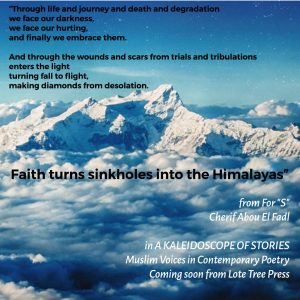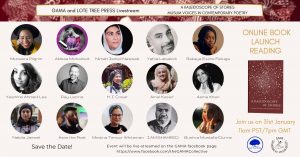“Poetry provides us with our truth. If a poet is not truthful it becomes very clear in a poem. Poets do not usually write for fame or fortune so poetry has an element of the sacred.”
Halee I Cosar is a Sydney based teacher, bilingual poet and community artist. Her first collection of poems, ‘Hijabi in Jeans’ was published in 2018 by Guillotine Press. A selection of her poetry will appear in the upcoming anthology A KALEIDOSCOPE OF STORIES – Muslim Voices in Contemporary Poetry, coming soon from Lote Tree Press.
What brought you to poetry?
My mother had the most beautiful voice and she would sing songs from Yunus Emre. Sounds have a way of seeping into our consciousness. I believe these memories have made a place in my soul which is where my poems come from.
Sadly, when we moved to Australia and I was learning English, I felt challenged by poetry. I just did not understand half the poems I read. It is ironic but for a long time I hated poetry. It frustrated me but I kept on working very hard at it. It was the last frontier of conquering language for me.
I usually pursue the strange beauty of what is difficult to achieve so I became curious about poetry. Then I became infatuated and now I believe we are in a steady relationship.
Also, I do believe that poetry chooses its vessels. Many of us do not really have a choice.
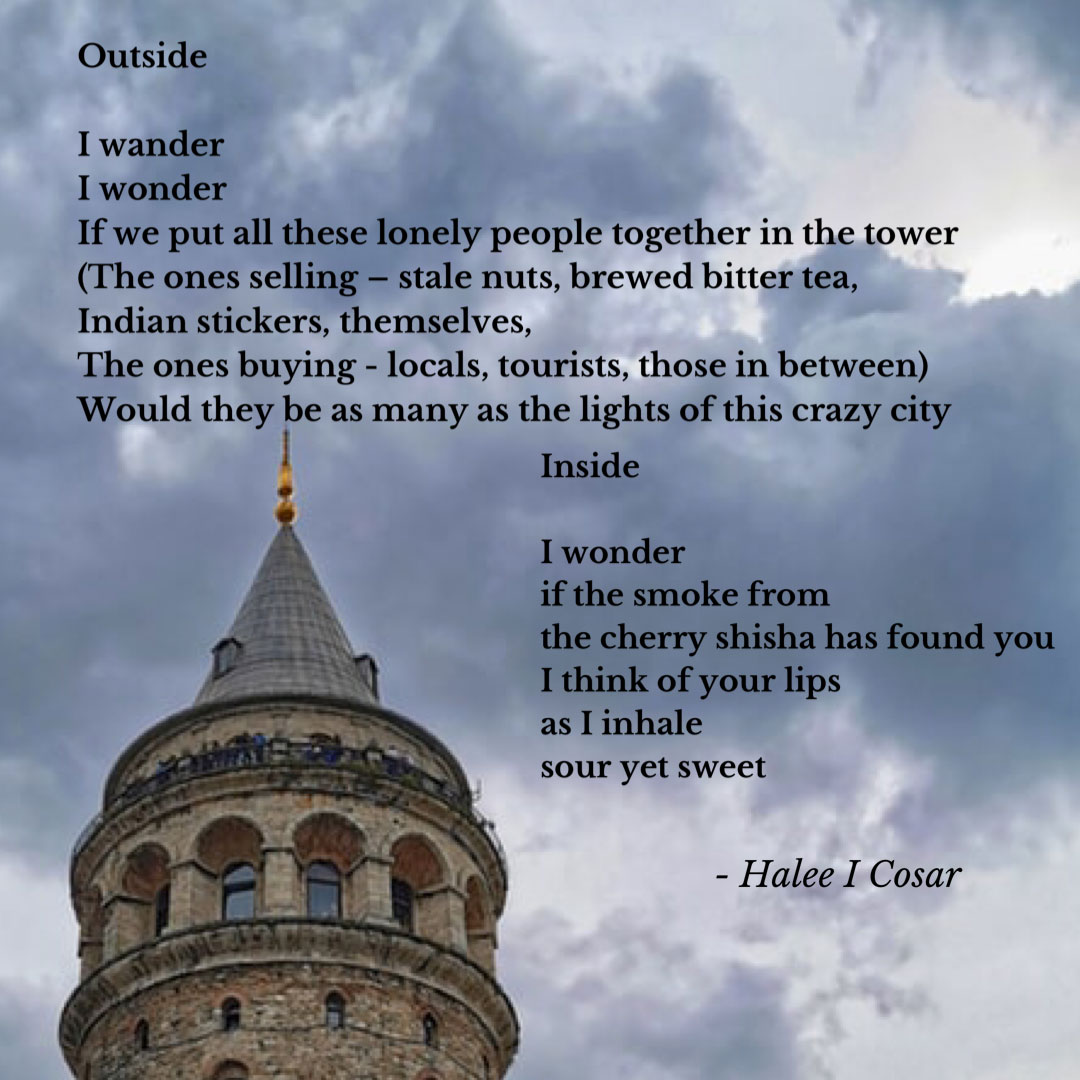
What role does poetry play in your life? What role does poetry play in expressing your identity and faith?
As human beings, we need to exist on Earth as spiritual beings. The world may be an illusion but it is made of matter. I am deeply amazed by the connections between body and soul, matter and meaning, light and shadows.
They say that even though voice is produced by the body, it is not part of the body. Poetry is my voice. Poetry is written in the heart chakra, it is the bridge between our base needs and our higher realms. It is my way of understanding and recording the world around me and inside of me to clarify, confirm or even to deny what I experience. It helps me marvel or question with courage in order to express my love and awe of everything Allah has made.
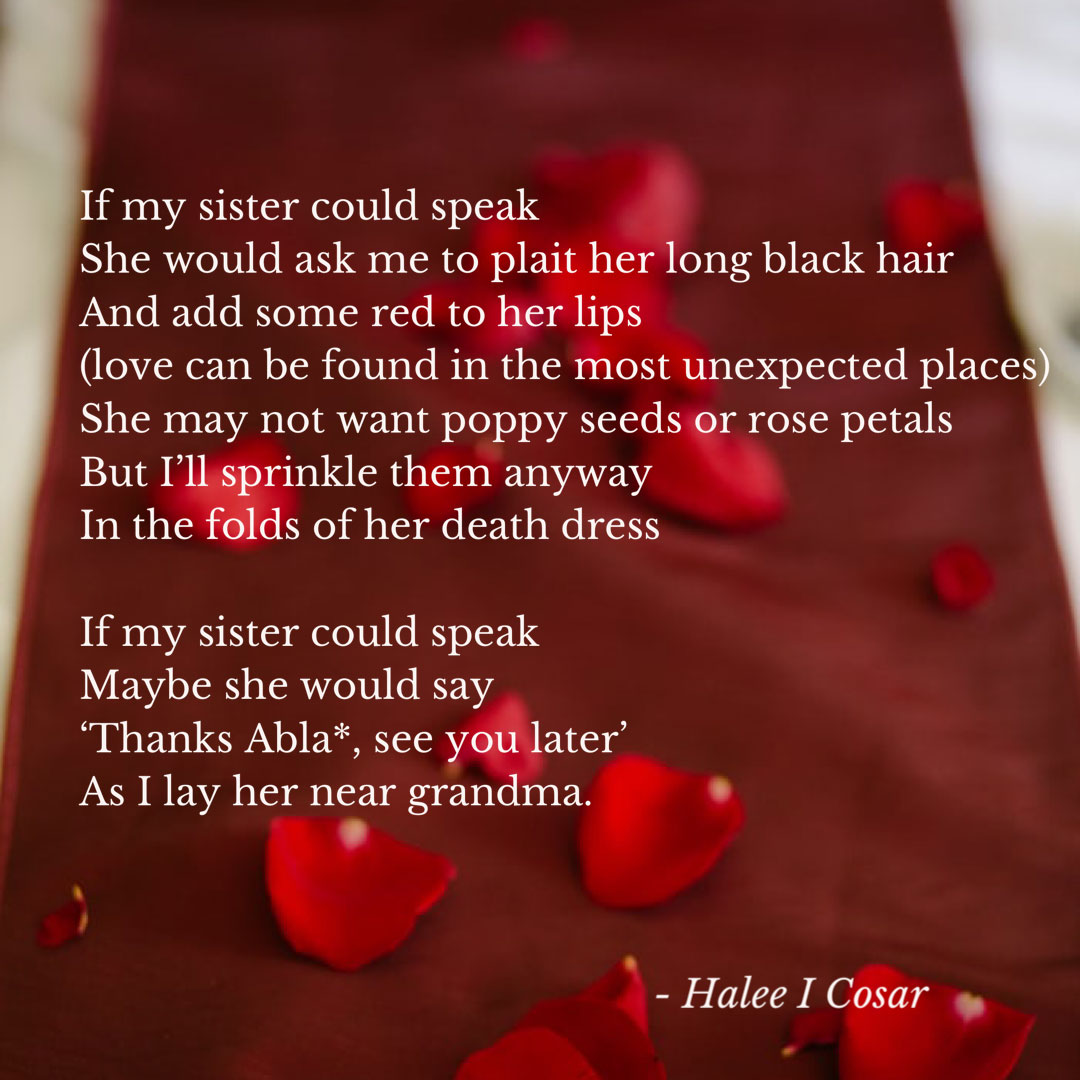
Do you have any advice for aspiring poets?
Poetry is an art form and just like any other artist, the poet needs to put in the endless hours of work for their art- if they want their art to be meaningful. However, when I say hours, I am not only referring to sitting down with pen and paper 8 hours a day. Poetry is everywhere so find what inspires you. Live life, observe, laugh a lot and cry a lot and of course read deeply. Write every day and be totally free as you write. When you are certain all the feelings and ideas are out, edit puritanically.
There is a lot of information about editing and you will experiment with different ways and find what works best for you. It is important to take yourself out of the editing process. The challenge in editing poetry is to ensure there is a 3D experience created. The reader needs to sense the poem. Instead of the images being general, they must be specific. Words that are not sensed will simply vanish because the details don’t make the poem, they are the poem. In order to have those details, the poet must sit with their subject.
Care deeply about your work and your voice but don’t be too sensitive about it. It is ok if everyone doesn’t love it or understand it. Never ever stop writing because of rejection or criticism. Be humble and light about your art, don’t take it too seriously. We are just playing our part. Have fun.
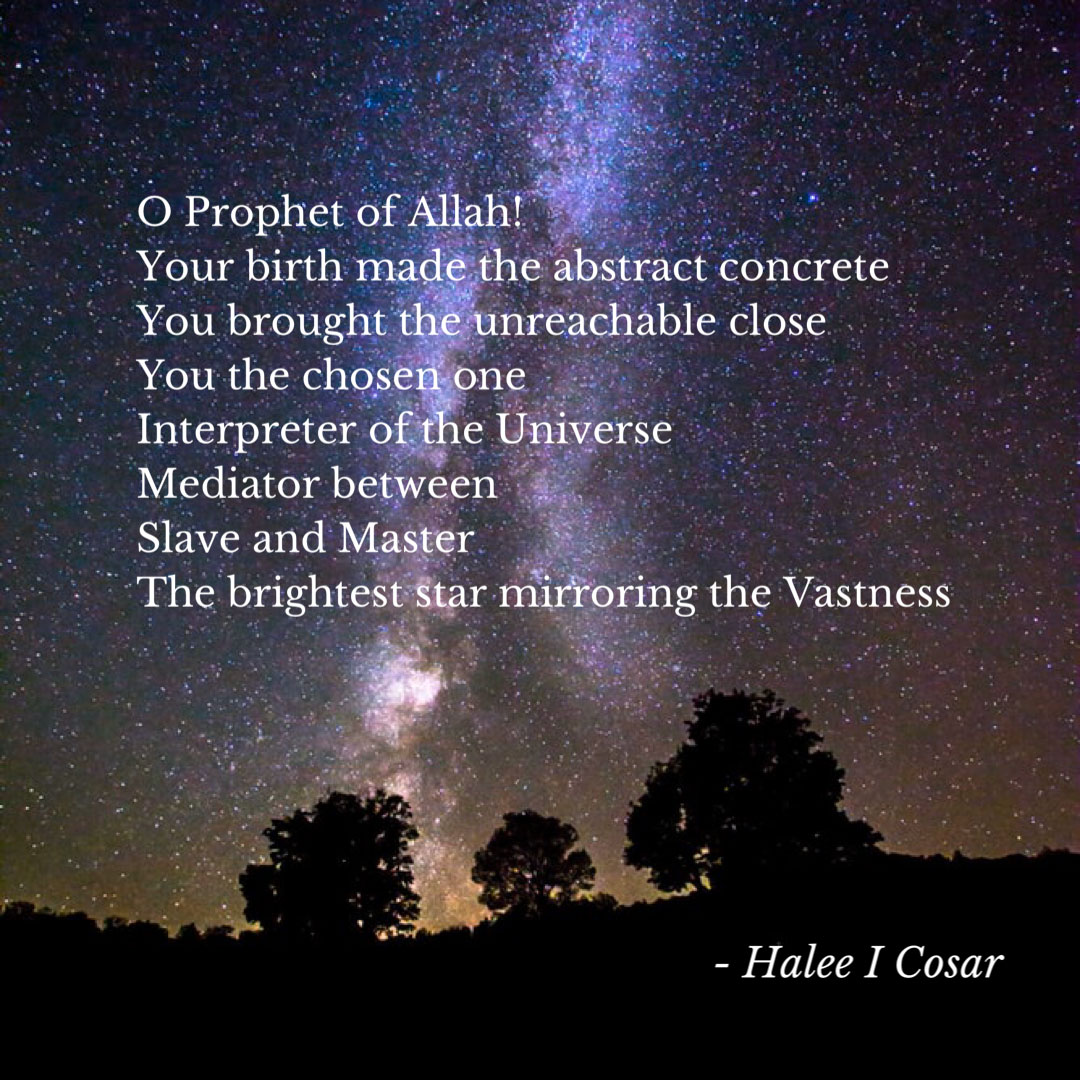
Why is poetry important?
We experience the physical world through our senses just like poetry uses our senses to make sense of the world in which we live.
The Arabic word for poet is shāʿir -the one who feels. A feeling can never be right or wrong as it is the result of an experience. And no one can deny a person’s experience. Poetry is about the personal experience becoming the universal. Details change about the human condition but the experience of being human is the same everywhere. Therefore we are still moved when Al-Mutanabbi says, “If you have seen nothing but the beauty of their markings, their true beauty is hidden from you.”
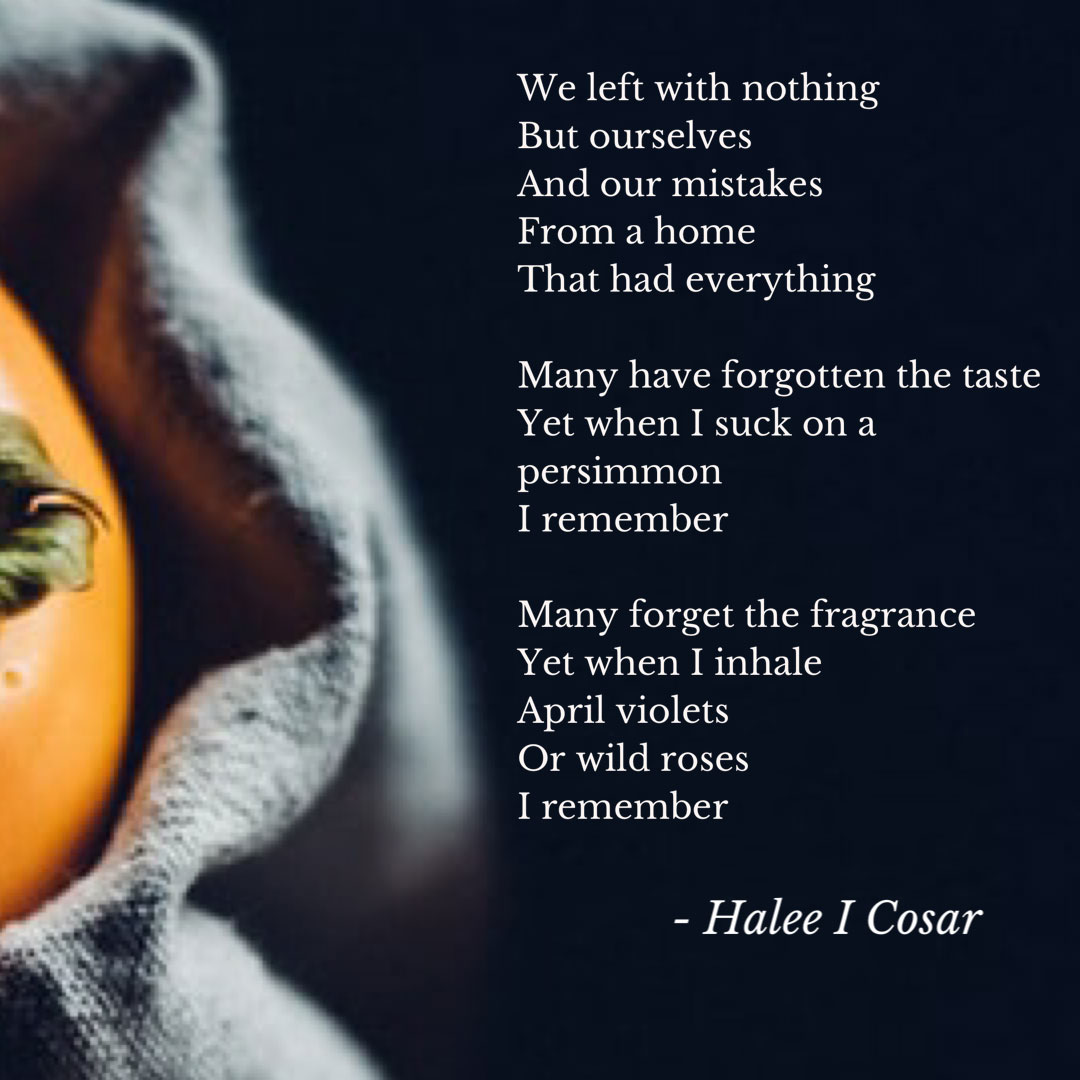
Poetry provides us with our truth. If a poet is not truthful it becomes very clear in a poem. Poets do not usually write for fame or fortune so poetry has an element of the sacred. Poets use words as rough pearls to string on the thread of our consciousness, each pearl being a mirror to our questions, fears, dreams, joys and hopes.
Poetry is our oldest form of literature. It is also the most versatile and adaptable. It has been a witness to our history yet it is always contemporary. There is literally something for everyone in the world of poetry.
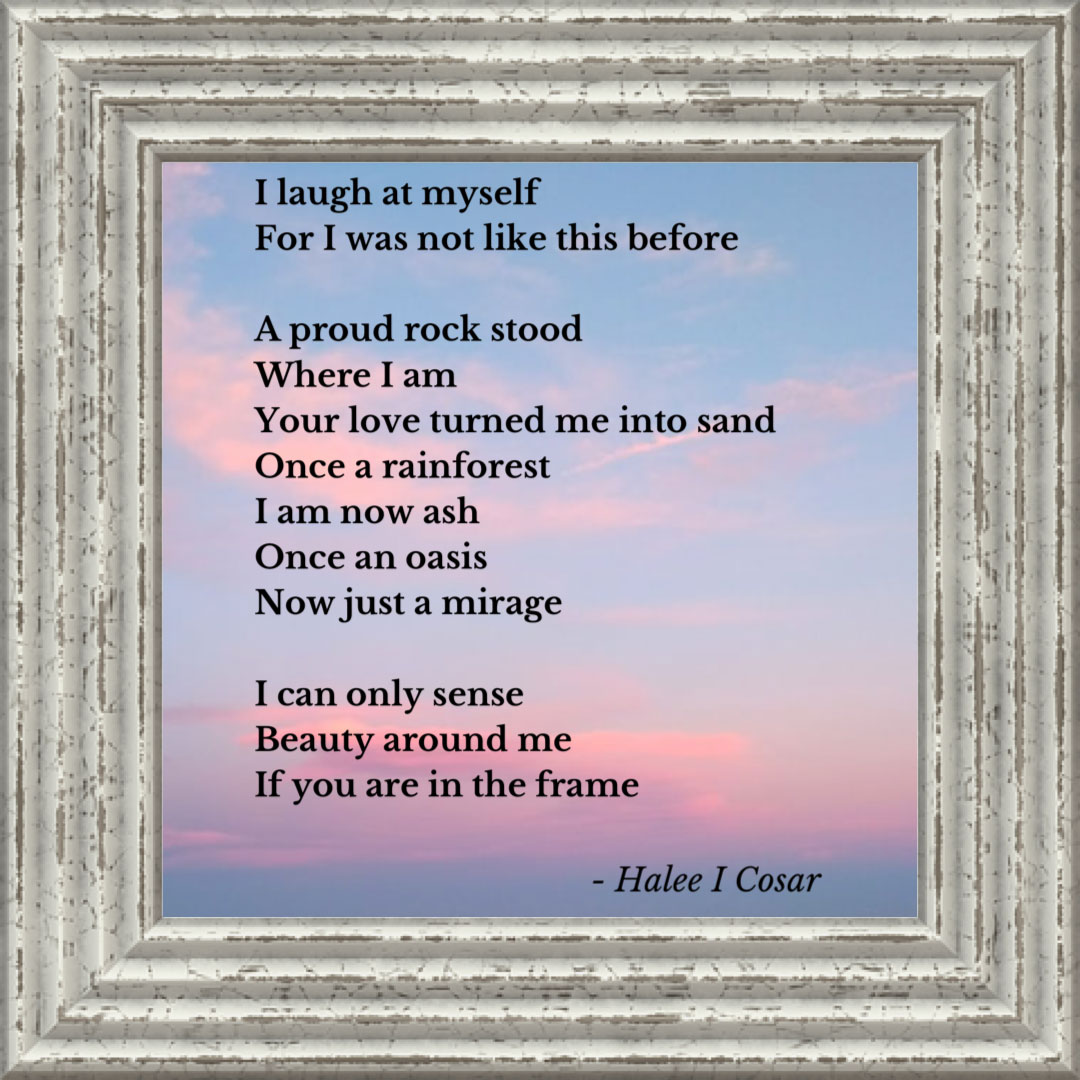
Halee I Cosar is a Sydney based teacher, bilingual poet and community artist who is interested in writing for the page as well as stage. Her first collection of poems, ‘Hijabi in Jeans’ was published in 2018 by Guillotine Press. She has work that has been published in anthologies ‘Poetry without Borders’, ‘On Second Thought’, ‘Can I Tell You a Secret’ as well as journals, ‘Mascara’ and ‘Australian Poetry Journal.’ She likes working on projects of intersectionality in particular those platforms where poetry meets other art forms. She has performed as a feature in reading circles, ‘Live Poets Society’, ‘Gugubarra’ as well as experimental theatre, ‘The Prophet – Remix’ and ‘Night Sky’.
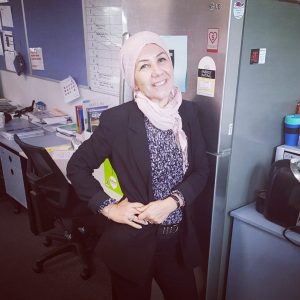
A KALEIDOSCOPE OF STORIES – Muslim Voices in Contemporary Poetry, coming soon from Lote Tree Press, is an anthology bringing together the myriad voices of over fifty Muslim poets from diverse backgrounds to powerfully articulate what it means to be Muslim in the modern world. It provides a platform for Muslim voices to be heard, speaking about their experiences in their own words, and offers an antidote to the stereotyped, one-dimensional portrayal of Muslims we see so often in the media.
